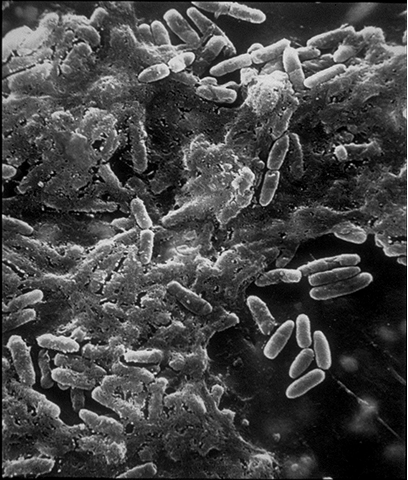 Bacteria biofilm adheres poorly to soft surfaces say researchers at MIT; the findings could help scientists develop more effective antibacterial coatings. If incorporated into medical devices, soft polymer films could help slow the growing scourge of hospital-acquired infections.
Bacteria biofilm adheres poorly to soft surfaces say researchers at MIT; the findings could help scientists develop more effective antibacterial coatings. If incorporated into medical devices, soft polymer films could help slow the growing scourge of hospital-acquired infections.
A biofilm is a complex aggregation of microorganisms that excrete a protective and adhesive matrix; once established biofilms are difficult to eradicate because traditional antibiotics cannot penetrate their protective secretions.
By one estimate, biofilms may be involved in 80% of all infections. Biofilms have been implicated in common problems including, urinary tract infections, catheter infections (pictured), the formation of dental plaque and gingivitis and even in infections in joint prostheses and heart valves.
The MIT study examined how surface stiffness affects biofilm formation. According to investigators, the number of bacteria that will adhere to a stiff surface is ‘orders of magnitude’ greater than that of the bacteria that will stick to a soft one.
Oftentimes the only way to remove an established biofilm is to scrape it off by hand – an impossibility when dealing with implanted devices.